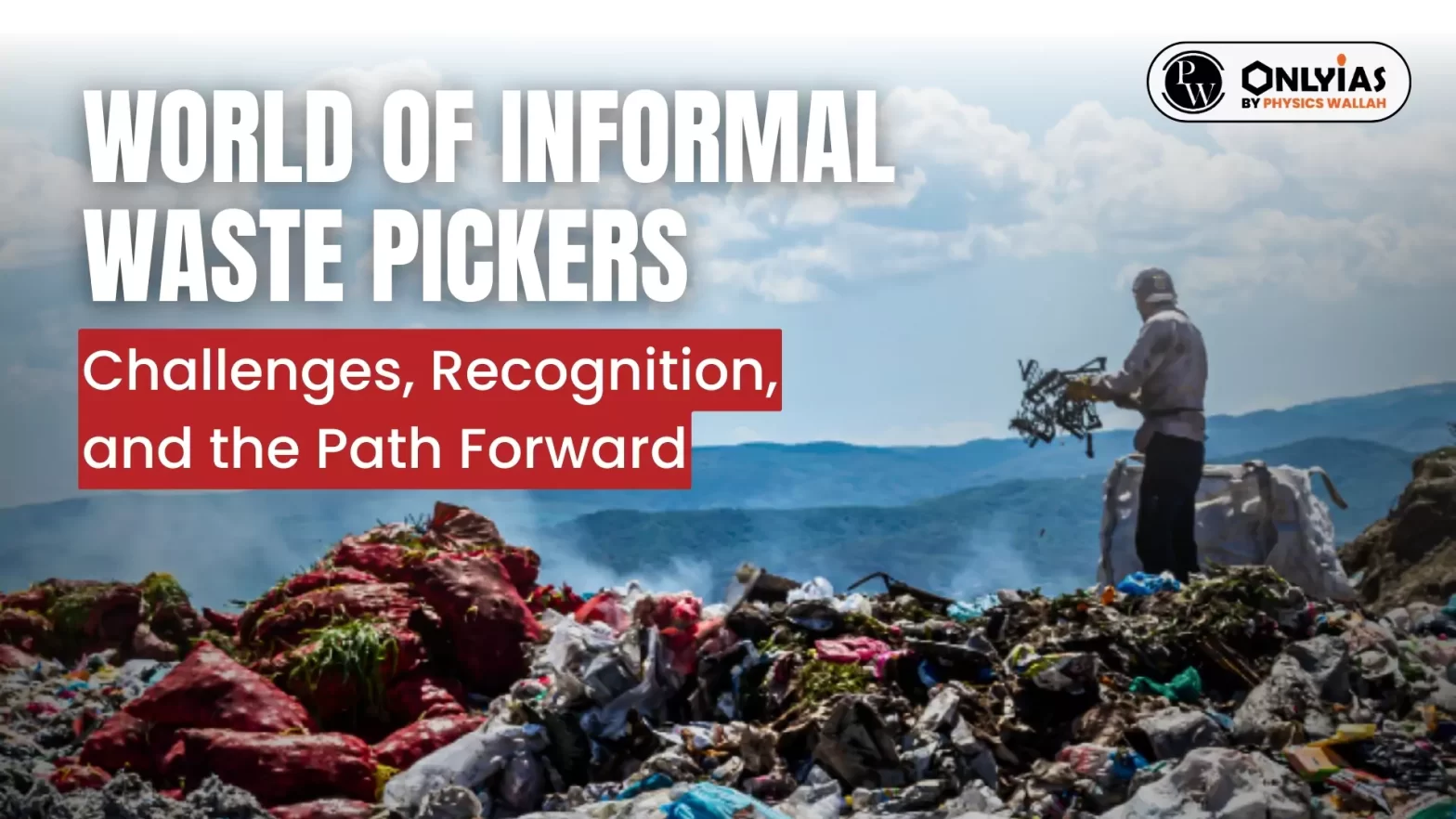![]() 1 Mar 2024
1 Mar 2024

This editorial is based on the news “Understanding The World Of The Informal Waste Picker” which was published in The Hindu. On March 1, International Waste Pickers Day, waste pickers across the world will pay homage to fellow pickers who were murdered in Colombia in 1992.
| Relevancy for Prelims: Informal Waste Pickers in India, their Challenges and Associated Regulations.
Relevancy for Mains: Informal Waste Pickers in India- Challenges and Way Forward. |
|---|
| Must Read | |
| NCERT Notes For UPSC | UPSC Daily Current Affairs |
| UPSC Blogs | UPSC Daily Editorials |
| Daily Current Affairs Quiz | Daily Main Answer Writing |
| UPSC Mains Previous Year Papers | UPSC Test Series 2024 |
<div class="new-fform">
</div>